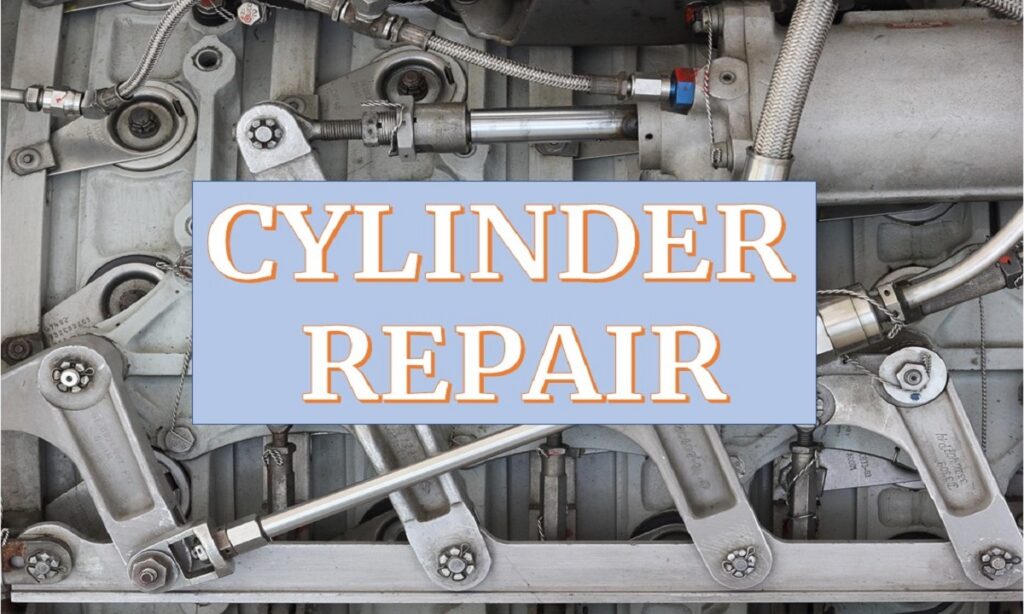Looking to perform hydraulic or pneumatic cylinder repair? This guide is packed with valuable tips and tricks to help you achieve smooth and effective operations. Learn about common issues and their solutions, as well as best practices for maintenance and troubleshooting. Improve your repair skills and ensure your equipment runs smoothly with this essential resource.
If you own heavy equipment or industrial machinery, then you know how crucial hydraulic pneumatic cylinders are for smooth operations. However, over time, these cylinders can develop issues that can hamper your productivity and even cause safety hazards. Fortunately, you can save money by repairing faulty cylinders instead of replacing them. In this article, we’ll go over everything you need to know about hydraulic pneumatic cylinder repair, from identifying problems to finding a reliable repair service.
Understanding Hydraulic Pneumatic Cylinders
Before we dive into the repair process, it’s essential to understand how hydraulic pneumatic cylinders work. These cylinders are a crucial component of machinery that relies on fluid power to generate force. They convert fluid pressure into linear force and are commonly used in construction equipment, industrial machinery, and agricultural machinery. There are two types of cylinders: hydraulic and pneumatic. Hydraulic cylinders use oil, while pneumatic cylinders use compressed air to generate force.
Identifying Common Cylinder Problems
The first step in repairing a faulty hydraulic pneumatic cylinder is identifying the problem. Here are some common issues you might encounter:
a. Leaking seals
One of the most common issues with hydraulic pneumatic cylinders is leaking seals. Seals prevent fluid from leaking out of the cylinder, but over time, they can wear out or become damaged, causing leaks.
b. Bent rods
Bent rods can occur due to overloading, misalignment, or accidental damage. Bent rods can cause the cylinder to bind or leak, which can affect productivity.
c. Contaminated fluid
Contaminated fluid can cause corrosion, clogging, or valve problems, which can damage the cylinder’s internal components.
DIY vs. Professional Repair
If you have experience working with hydraulic pneumatic cylinders, you may be able to repair them yourself. However, if you’re not experienced, it’s best to leave the repairs to a professional. Attempting to repair cylinders yourself can be dangerous and can cause more damage to the cylinder. A professional repair service will have the expertise, tools, and equipment needed to repair your cylinder safely and effectively.
Choosing a Repair Service
When choosing a hydraulic pneumatic cylinder repair service, there are a few things to consider:
a. Reputation
Look for a repair service with a good reputation in your industry. You can check online reviews or ask for referrals from other business owners.
b. Experience
Choose a repair service that has experience working with your type of cylinder. An experienced technician will be able to diagnose and repair the problem quickly and effectively.
c. Cost
Compare prices from several repair services before making a decision. Keep in mind that the cheapest option may not be the best quality.
Preventative Maintenance
Preventative maintenance is essential for keeping your hydraulic pneumatic cylinders in good condition. Regular inspections can identify potential problems before they become costly repairs. Here are some preventative maintenance tips:
a. Check fluid levels
Check fluid levels regularly and top up if needed. Use the recommended fluid type and change the fluid at the recommended intervals.
b. Check for leaks
Check for leaks regularly and replace damaged seals as needed.
c. Inspect rods
Inspect rods for signs of wear or damage and replace as needed.
Conclusion
Hydraulic pneumatic cylinder repair is essential for maintaining the productivity and safety of heavy equipment and industrial machinery. Identifying common problems, choosing the right repair service, and preventative maintenance can all help to keep your cylinders in good working order.
FAQs
1. How often should I have my hydraulic pneumatic cylinders inspected?
Ans. It’s recommended to have your cylinders inspected at least once a year or more frequently if they are in constant use.
2. Can I repair a hydraulic pneumatic cylinder myself?
Ans. If you have experience working with hydraulic pneumatic cylinders, you may be able to repair them yourself. However, it’s best to leave the repairs to a professional if you’re not experienced, as attempting to repair cylinders yourself can be dangerous and can cause more damage to the cylinder.
3. How do I choose the right repair service for my hydraulic pneumatic cylinder?
Ans. When choosing a hydraulic pneumatic cylinder repair service, consider their reputation, experience, and cost. Look for a repair service with a good reputation in your industry, experience working with your type of cylinder, and fair pricing.
4. What are some preventative maintenance tips for hydraulic pneumatic cylinders?
Ans. Regular inspections, checking fluid levels and replacing damaged seals, and inspecting rods for signs of wear or damage are all important preventative maintenance steps to keep your cylinders in good working order.
5. How can I avoid hydraulic pneumatic cylinder problems in the future?
Ans. Performing regular preventative maintenance and using your equipment correctly can help avoid cylinder problems in the future. It’s important to follow the manufacturer’s recommendations for maintenance and operation and address any issues promptly to prevent further damage.

